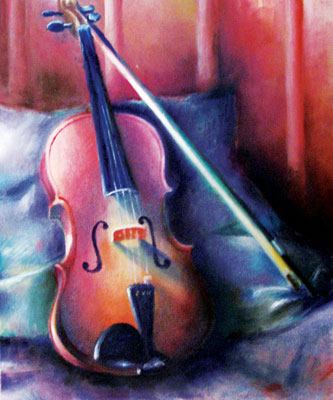All Nonfiction
- Bullying
- Books
- Academic
- Author Interviews
- Celebrity interviews
- College Articles
- College Essays
- Educator of the Year
- Heroes
- Interviews
- Memoir
- Personal Experience
- Sports
- Travel & Culture
All Opinions
- Bullying
- Current Events / Politics
- Discrimination
- Drugs / Alcohol / Smoking
- Entertainment / Celebrities
- Environment
- Love / Relationships
- Movies / Music / TV
- Pop Culture / Trends
- School / College
- Social Issues / Civics
- Spirituality / Religion
- Sports / Hobbies
All Hot Topics
- Bullying
- Community Service
- Environment
- Health
- Letters to the Editor
- Pride & Prejudice
- What Matters
- Back
Summer Guide
- Program Links
- Program Reviews
- Back
College Guide
- College Links
- College Reviews
- College Essays
- College Articles
- Back
Arts in Education
Students in schools are required to take classes that teach one how to pass a standardized test, such as math and science, but when will trigonometry or chemistry actually be helpful in a day to day life? Students need classes that teach organization, team work, creativity, professionalism, confidence, acceptance of others, and being yourself. What kind of classes can possibly provide those characteristics? The answer is simple. Arts/performing arts classes, such as theatre, band, orchestra, choir, dance, drawing, painting, or sculpting can teach many valuable life lessons, plus the arts have been around since the beginning of time, and it deserves to live on through many people in future generations. I believe that arts education should be provided at all schools around the world.
One of the most important/beneficial things about being involved in the arts is that there is an endless amount of jobs concerning the arts after high school. Those interested in performing can continue through acting in film or theatre, dancing in performances or music videos, playing an instrument for a band, or being a professional artist. Those who like to stay behind the scenes also have some job options, such as stage manager, director, lighting or sound technician, publicist, set designer, financial expert, makeup artist, and many more. After high school, students can almost guarantee a job in the arts since so many different skills are used and needed.
Also, there are many community and educational benefits that come from the arts. From acting and singing performers learn new vocabulary terms, and can analyze different sentence structures, and word choice to really understand the material. A statistical study showed that art involved students outperformed their non-art peers on the SAT by 91 points. It was also discovered that art students are 3x more likely to be recognized for academic achievement, and winning awards in writing, attendance, and science. (americansforthearts) For example, teacher Jeff Fessler acted out speeches more fluently, understood math better from 3D paintings, and understood more vocabulary when he was a student. Now, Fessler integrates his artistic knowledge into his teachings. (Fessler). Art students also help improve a community. It has been found that theatre makes a student more likely to be friendly toward other racial groups, and that art students are more likely to spend leisure time in community services or youth groups. (americansforthearts).
Finally, art is very healthy for the soul and mind. Acting and music increases short term, and long term memory while still reducing dementia. Memorizing lyrics, notes, and lines exercises the mind, and makes one a better listener. For example, a study by scientist Nina Kraus discovered that those involved with music are better listeners, and are more focused than those who aren’t involved with music. “I feel like I’m more ready to learn [playing the trombone] teaches me to pay attention and listen.” (Quezada)
Although, there are some people that think arts education should not be provided at schools such as, Blake Gebhardt. “They take time away from more important subjects. Schools should be spending more time and money on classes like math and science. Art clubs can meet before or after school, and kids can choose whether they want to participate.” (Gebhardt). Teacher, Amy Murray also says, “Children are still being exposed to art and music, and the libraries are still open, but we’re moving toward if your child is motivated by art and music, you as a parent have to look at other avenues such as private music lessons…” (Murray). Neither of these claims are valid, while math and science are important to pass tests they do not prepare students for the real world nor do they teach important life lessons. In addition, some families may not have enough money to pay for private lessons and some students don’t have time before/after school to participate due to taking care of younger siblings, or already having a commitment to another activity.
As a final point, arts education should be provided at all schools and exposed to all students whom want to learn more about the arts. Not only will they be able to succeed with the arts after high school, improve in school, become more accepting, or get healthier, but they will have fun, be ready for the tough life ahead of them, and have enough confidence to be themselves. Personal and educational benefits should always be praised. The arts matter.

Similar Articles
JOIN THE DISCUSSION
This article has 0 comments.
